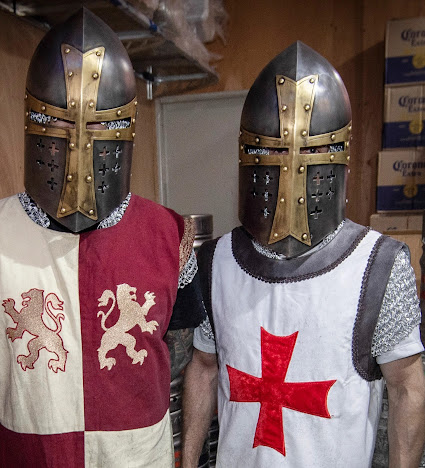Thursday, December 15, 2022
FRIDAY MUSIC: Christmas music (part 1), by JD
Wednesday, December 14, 2022
Marketing is self-serving BS, by Paddington
For many years, I have wondered about the efficacy of advertising.
Friday, December 09, 2022
FRIDAY MUSIC: Last-minute Christmas Chopin, by JD
Thursday, December 08, 2022
US college math: If at first you don't succeed... by Paddington
There is current news on the intent of the state legislature to take over the State Board of Education, and the articles on the subject include a discussion of the 2021 Ohio Remediation Report. That report states that the percentage of students going to higher education and requiring remediation in Mathematics and/or English is declining.
Most of that gain appears to have been achieved by changing definitions.
When I started teaching Mathematics at the University of Akron in 1978, approximately 80% of the incoming students had not mastered Algebra I enough to pass a placement test into a college-level Mathematics course.
That 80% figure was national, often quoted as 'only 15% of 12th grade students were ready for a college-level Math course' (The difference in percentages was due to those students who didn't go to higher education).
When I retired in 2017, that 80% figure had not changed, despite the addition of lots of technology, and rounds of 'innovation' from Colleges of Education.
So, universities and colleges around the country were under pressure to 'fix the problem', and responded by generating courses which were not actually college-level, simply eliminating the requirement for a Math course, or re-defining what a Math course was. Others, such as the University of California system, have tried to hide the problem by 'just in time' remediation, which works about as well as one would expect.
After a half century of teaching and thinking about this problem, I wish I could have an answer, as a genuine solution would likely make me rich. I can, however, safely say that wishing it away doesn't help.
Saturday, December 03, 2022
Palace in new bigotry storm
The nation was rocked today by fresh allegations of religious prejudice at the heart of the Monarchy. Speaking on BBC’s flagship morning programme Bleatfast, Sir Rious de Ralement (pictured above, right) sobbed as he related a bruising encounter with an elderly member of the Royal Household:
She asked me if I was a Christian. What on Earth could have given her that idea? I said no, I’m a pagan actually. But she wouldn’t let it lie. What were you before that? RC? CofE? I tell you, I felt violated.
Sir Rious felt under his tabard, moved the large wooden cross beneath it to one side and retrieved a sodden handkerchief. He blew his nose and muttered:
Lucky I had a tape recorder on me - here’s a copy of the transcript.
Sir Rious (formerly Brian Prendergast) spoke movingly of his childhood on the Bungalow Estate in Penge. His peers used to laugh at the monk’s alb he wore over his school uniform and his chemistry teacher scolded him for lighting a votive candle during lab experiments with hydrogen.
It was a lonely hell. My Jew and Muslim class mates never accepted my invitations to our Sunday family pork roast. But I won’t give up, I’m proud of my homicidal Crusader heritage, even if I’m not one myself.
The BBC was deluged with sympathetic tweets during and after the broadcast.
If you have been affected by any of the issues raised please etc etc.
Friday, December 02, 2022
FRIDAY MUSIC: Ringo Starr, by JD
Monday, November 28, 2022
Reopen the talent mines! by Paddington
As Heinlein pointed out, the natural state of Man appears to be poverty.
Two hundred years ago, a person living on my property was 10 miles from the nearest small town. If he didn’t plan ahead, he would starve or freeze in the winter. Thanks to advances in technology, all but the very poorest of us now have access to clean water, cheap and safe food, and terabytes of bad information and pornography.
These advances were the result of government investment in basic science, including semiconductors, computers, nuclear energy and the internet itself. The researchers who did most of this were middle class through and through. Most engineers and scientists still are, and gain their training through the public education system. The well-educated children of the rich become lawyers, bankers, and sometimes doctors.
The contest between the creative geeks and the leaders of our societies go back over a millennium.
During the Middle Ages, many of the skilled workers were represented by the guilds, including the Freemasons. The Catholic Church kept their power in by controlling the spread of science and technology, while keeping the nobility largely illiterate. This balance of power shifted in the labour shortage that resulted from the Black Plague.
As the population increased, thanks to the dissemination of technology, the balance of power gradually shifted back, until the Scientific Revolution required skilled workers in large numbers. This led to the drive for public education.
In our lifetimes, we have moved to a Global economy, giving access to huge reservoirs of cheap labour. Our business and political leaders, most of whom do not know how to do anything practical, simply assume that the vast riches around them are the result of their own brilliance, and so are quite happy to move all of our jobs to other countries. They also work to dismantle the education system, and cut money for research, since this saves them taxes. The current economic crises give them the perfect excuse.
The problem is that simply preserving what we have as a society requires mining our meager talents every bit as aggressively as we drill for oil.

